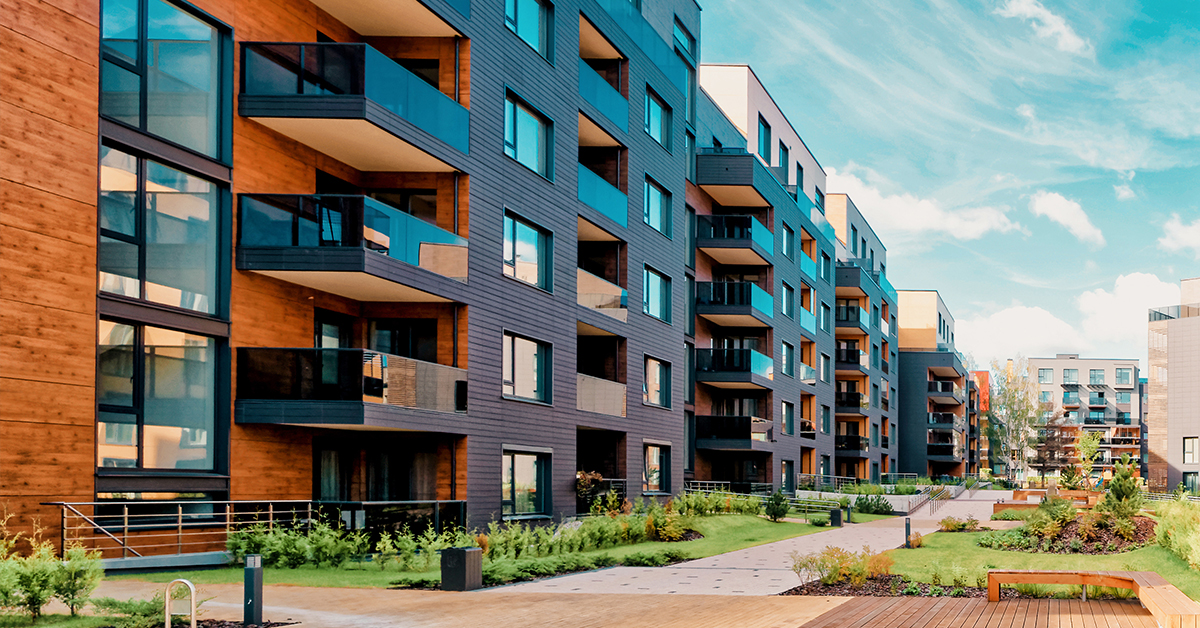The Function of an HOA in Establishing and Enforcing Neighborhood Guidelines for Citizens
The role of a Homeowners Association (HOA) in enforcing and establishing area standards is fundamental to keeping a organized and cohesive household atmosphere. By formulating clear regulations that govern aspects such as building maintenance and area conduct, the HOA not just establishes requirements for homeowners however also promotes a sense of belonging and liability.
Comprehending Property Owners Associations
Homeowners associations (HOAs) act as controling bodies for household neighborhoods, playing an essential function in keeping home values and cultivating a feeling of area. Commonly developed by programmers, HOAs are composed of property owners within an assigned area who elect a board to oversee the association's tasks. The main functions of an HOA include implementing neighborhood rules, handling common locations, and organizing community events.
HOAs run under a collection of governing papers, consisting of problems, restrictions, and covenants (CC&R s), which detail the legal rights and duties of homeowners. These policies aim to guarantee that buildings are maintained to a specific standard, thus shielding the visual charm and general worth of the area. Additionally, HOAs usually gather dues from property owners to money maintenance, landscape design, and various other social work.
The visibility of an HOA can significantly affect the living experience within an area (hoa condo). While some locals value the structured atmosphere and services supplied, others might locate particular regulations restrictive. Balancing the passions of all property owners is necessary for an HOA to work properly, making sure that it serves its designated objective of boosting area living while respecting specific home owner legal rights
Establishing Community Guidelines

To start, an HOA needs to perform surveys or convene that enable homeowners to articulate their recommendations and problems. This participatory procedure fosters a feeling of ownership and raises conformity. Next, the HOA board should examine the comments to identify usual themes and top priorities that necessitate official incorporation in the standards.
It is also vital to ensure that the guidelines are clear, concise, and quickly comprehended. Ambiguities can cause problems and misunderstandings, threatening the function of the guidelines. The guidelines should be comprehensive, covering various elements of neighborhood living, consisting of building maintenance, sound degrees, and use of common locations.
Enforcement of Regulations
Reliable enforcement of community guidelines is essential for preserving order and making certain that all citizens stick to the developed guidelines. An HOA should apply an organized approach to impose these regulations, which commonly involves a mix of tracking, interaction, and charges for non-compliance.
First, regular examinations and area patrols can aid determine infractions, guaranteeing that policies are constantly applied throughout the community. This proactive monitoring permits the read what he said HOA to attend to concerns before they rise, cultivating a sense of liability amongst residents.
2nd, clear communication is necessary. Residents ought to be educated of the guidelines and the procedures for reporting offenses. An open line of interaction encourages locals to voice problems and seek information on guidelines, which can enhance conformity.
Finally, when infractions occur, the HOA needs to impose consequences as laid out in the controling files. This may consist of cautioning letters, penalties, or, in severe cases, legal why not try this out activity. It is important that fines are used fairly and regularly to preserve depend on within the community. By successfully enforcing guidelines, an HOA can cultivate an unified living environment that shows the cumulative worths of its locals.
Advantages of HOA Laws
Various advantages arise from the application of HOA policies, which offer to enhance the lifestyle within a neighborhood. One key benefit is the maintenance of residential property worths. By enforcing standards for aesthetic appeals and upkeep, HOAs ensure that homes and usual areas remain appealing, fostering a desirable living environment that can cause increased building worths gradually.
Additionally, HOA policies advertise uniformity and harmony within the community. This coherence in design and upkeep assists to develop a feeling of belonging amongst locals, adding to area pride and a favorable environment. Developed standards assist in conflict resolution among neighbors by giving clear assumptions and procedures for actions, therefore decreasing conflicts.
Another considerable benefit is the arrangement of common facilities and services. Several HOAs handle neighborhood facilities such as parks, clubs, and pools, which improve leisure possibilities for residents. These services not only improve the lifestyle yet likewise encourage social interaction.
Inevitably, the guidelines set forth by an HOA cultivate an efficient, unified community, ensuring that citizens delight in a high standard of living while promoting a supportive setting for all house owners.
Typical Obstacles Faced by HOAs
Among the benefits that home owners organizations (HOAs) can supply, they additionally encounter a range of obstacles that can prevent their effectiveness. One pop over to this web-site substantial problem is the absence of resident involvement. Many homeowners may not take part in meetings or area activities, bring about a disconnect between the HOA board and residents. This disengagement can lead to misunderstandings regarding community guidelines and a lack of assistance for enforcement initiatives.
Disputes can arise when residents really feel that enforcement is irregular or prejudiced, possibly leading to disputes within the area. Furthermore, HOAs commonly encounter financial restrictions, which can restrict their capacity to preserve usual locations or fund community projects.
Furthermore, navigating legal complexities can be intimidating for HOAs. They have to make certain conformity with state regulations while handling their very own regulating papers, which can be a source of confusion. Finally, altering demographics and advancing neighborhood needs need HOAs to adapt their guidelines, frequently satisfying resistance from enduring locals who are accustomed to traditional standards. Addressing these obstacles is vital for promoting a harmonious and growing area.
Conclusion

By developing clear regulations that control elements such as property upkeep and area conduct, the HOA not only sets criteria for residents however additionally fosters a feeling of belonging and responsibility.Homeowners organizations (HOAs) serve as regulating bodies for household communities, playing a critical role in maintaining residential property worths and fostering a sense of area. Several property owners may not take part in conferences or area tasks, leading to a disconnect between the HOA board and locals. Advancing and changing demographics community needs require HOAs to adapt their guidelines, typically satisfying resistance from long-lasting homeowners that are accustomed to typical norms. Through the development of clear regulations and consistent enforcement, HOAs promote residential or commercial property maintenance, community pride, and trust amongst homeowners.
 Alfonso Ribeiro Then & Now!
Alfonso Ribeiro Then & Now! Michael Fishman Then & Now!
Michael Fishman Then & Now! Matilda Ledger Then & Now!
Matilda Ledger Then & Now! Marcus Jordan Then & Now!
Marcus Jordan Then & Now! Bo Derek Then & Now!
Bo Derek Then & Now!